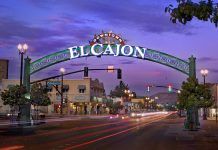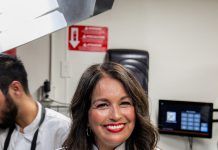Three federally qualified health centers, San Ysidro Health, Family Health Centers of San Diego, and La Maestra Community Health Centers each received a $25,000 donation from UnitedHealthcare Community Plan of California for funding vaccinations for the underserved and low-income families throughout their clinics and sites in San Diego County. This is part of UnitedHealthcare’s accelerated vaccination program.
UnitedHealthcare Community Plan of California Director of Marketing & Community Outreach Monique Knight said that its Community Plan is its Medi-Cal plan which serves low-income people and that UnitedHealthcare is dedicated to helping people live healthier lives by serving the vulnerable populations.
“The COVID pandemic has shed a brighter light on how disparities, and the need to reach underserved members of our community,” said Knight. “To help accelerate the COVID vaccines in our community, UnitedHealthcare donated $75,000 to three Federally Qualified Health Centers in San Diego. Each of the FQHCs received $25,000 to help expand their efforts to vaccinate as-risk populations.”
Knight said that San Ysidro Health will increase access to COVID vaccines and services, including staffing evening and Saturday vaccination clinics. Family Health Centers of San Diego will support its continuing COVD vaccination efforts for underserved populations, and La Maestra Community Health Centers will increase vaccination efforts and organizational capacity to ensure that more vaccines are distributed.
“All three of these FQHCs, more commonly known as community health clinics have multiple locations around San Diego County,” said Knight. “We are fortunate that these efforts are being amplified across all areas of the county to reach as many people as possible.”
Family Health Centers of San Diego Senior Director Anthony Wright said Family Health has more than 50 locations, with 25 primary care clinics. Its additional clinics support mental health, HIV, homeless outreach and its other programs. He said Family Health was grateful for the donation in helping its vaccine efforts and are already utilizing the funding to expand its reach within the county.
“We provide vaccinations for all our patients and the public at our clinics, but we have five larger sites where we can do more vaccinations,” said Wright. “Especially our one in Barrio Logan and in El Cajon, our large outside tents. We also have them in Chula Vista, National City, and San Diego. We have different vaccines at different locations. This funding is to help provide vaccines for the general public outside our existing patients.”
Wright said it is focusing on targeted campaigns, using social media, social marketing, and its “boots on the ground” outreach.
“We will go out and do what we call a mini blitz where we divide the neighborhood up, locate the communities that have low vaccination rates, and go door to door talking to people,” he said. “Talking about the reason why they may not be vaccinated and give information on vaccine facts and myths. We can either make appointments for them or give them information about our walk-in vaccinations.”
Wright said the best advice that he can tell anyone is to get vaccinated.
“I am hoping that as people are seeing more and more getting vaccinated, and things opening more, that it encourages them to go and get vaccinated for themselves and for the rest of the community,” he said. “Often, we see the groups that think they may be somewhat immune to a serious illness, oftentimes the younger population, but if they caught it, they could infect so many others around them. We are still having deaths every day in the county that could be avoided.”
Wright said it is currently working with the Downtown El Cajon Business Partners to provide vaccinations at its weekly car show events.
“We already have the approval,” he said. “We are just waiting on the logistics so that we can start providing vaccinations there every Wednesday for the summer. Things have really moved from the superstations model to now try and make vaccinations available wherever people are to make it convenient for them. We are also talking with other communities around the county on how we may integrate vaccinations with things that they are already doing and there are already people there.”
Knight said the reason that providing funding to FQHCs is that many people do not realize that they serve about one in 12 people in the U.S.
“But they are often under resourced and in many cases, especially in times of crisis like the COVID pandemic, many FQHCs rely on outside funding to remain in operation,” said Knight. “United Healthcare is proud to work with our FQHC partners, not only through these vaccine acceleration efforts, but many other programs year-round. Many of our FQHC partners have other outreach programs such as mobile clinics, food distribution, and homeless outreach efforts that UnitedHealthcare supports as well. This is one program that we are supporting through our community partners.”
Knight said the COVID -19 vaccines are an important step in slowing the spread of the virus and key to protecting people’s health.
“UnitedHealthcare is committed to remove barriers to vaccinations, building vaccine confidence, and supporting equitable access among the communities that we serve. We are doing many things to move the community in that direction,” she said.
United Healthcare Community Plan of California is part of United Health Group, its larger enterprise organization serving the Medi-Care population, its product for seniors. It also has insurance for employers and individuals. UHC Community Plan serves the Medi-Cal population of low-income individuals. For more information about UnitedHealthcare Community Plan of California call 1-866-270-5785 or visit www.UHCCommunityPlan.com/ca.














